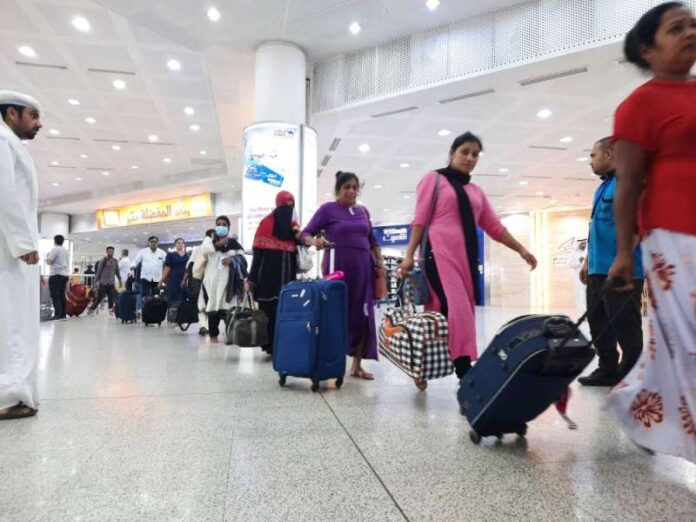Despite the ban on recruiting Filipino workers since last February and the restriction of direct recruitment of domestic workers from only India and Sri Lanka, the count of domestic workers in Kuwait surged from 583,000 by the end of 2021 to 811,000 as of October last year.
Labor statistics unveiled a notable increase in domestic workers arriving from India, marking a 30 percent rise compared to the previous year, with approximately 361,000 domestic workers recorded as of October. Notably, only 28.7 percent of them were female, while the rest were male, reports Al-Rai daily.
In contrast, there was a significant drop in the number of domestic workers from Sri Lanka, declining from 79,000 in 2022 to just 48,200 in 2023. On average, about 4,800 domestic workers from Sri Lanka entered Kuwait monthly, with over 90 percent of them being female.
Although Filipino female workers were banned from recruitment, they still constituted the largest group of female domestic workers, with their number in 2023 reaching around 99.4 percent of the 201,000 Filipino domestic workers in Kuwait.
Bassam Al-Shammari, a specialist in domestic worker affairs, explained the overall increase in domestic workers can be attributed to the growing demand for them, particularly due to the development of numerous new residential communities in Kuwait. Al-Shammari emphasized that increased awareness among both employers and domestic workers regarding their respective rights and responsibilities, along with improved treatment of domestic workers, has resulted in a noticeable decrease in cases of runaways and labor disputes.
Numbers of domestic workers as of last October
— India: 371,222 workers (71.3 percent male – 28.7 percent female)
— Philippines: 201,110 workers (0.6 percent male – 99.4 percent female)
— Sri Lanka: 103,685 workers ( 20.6 percent males – 79.4 percent females)
— Bangladesh: 85,989 workers (99 percent males – 1 percent females)
— Nepal: 25,540 workers (4.7 percent males – 95.3 percent females)
— Ethiopia: 11 One thousand and 684 workers (8.2 percent males – 91.8 percent females)
— Other nationalities: 11 thousand and 616 workers (59.1 percent males – 40.9 percent females)
Bassam Al-Shammari has presented four proposals through Al-Rai that could contribute to Solving employment problems, which are:
1 – Equality for holders of Article 20 regarding reports of absence under Article 18, and that the report be submitted on the date of absence and not be activated until after 60 days, as this procedure contributes to addressing 80 percent of labor problems and issues, and removes Embarrassment over malicious reports that the majority of domestic workers in embassies suffer from, due to the difficulty of filing an absence report.
2 – Activating the role of the shelter center affiliated with the Public Authority for Manpower, and coordinating with the embassies of countries exporting domestic workers.
3 – Accelerating the end of labor disputes, and quickly restoring workers’ rights in disputes through amicable solutions.
4 – Seeking help from recruitment offices to resolve any dispute between the worker and the sponsor may reduce about 30 percent of cases.

















